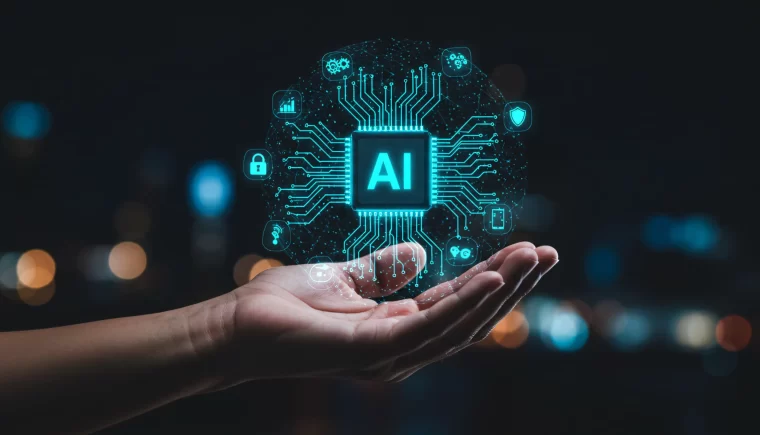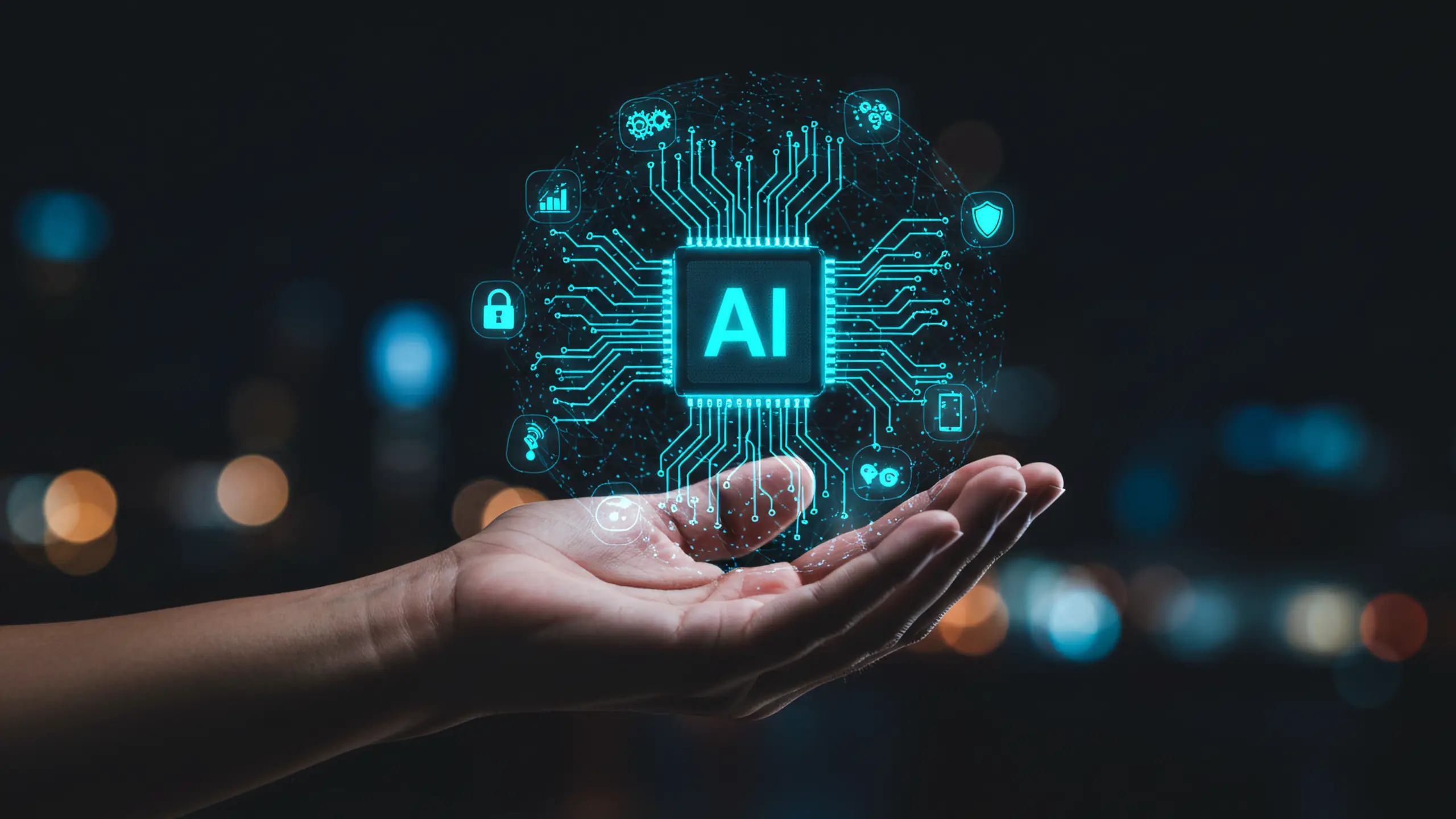Undoubtedly, Narrow AI actively powers countless technologies we use daily, yet surprisingly, most people don’t recognize these specialized intelligence systems working invisibly behind the scenes of our digital lives.
What is Narrow AI? Essentially, Narrow AI (also called Weak AI) refers to artificial intelligence systems specifically designed to perform particular tasks within limited parameters, unlike general AI that aims to replicate human-like thinking across multiple domains.
What Is Narrow AI and How Does It Shape Our Daily Lives?
Primarily, Narrow AI fundamentally operates as task-specific intelligent systems that excel at specialized functions rather than general thinking. Consequently, these focused AI applications have seamlessly integrated into our everyday technology, where they efficiently process information, make predictions, and solve problems within their defined domains.
| Narrow AI Traits | What This Means |
|---|---|
| Task Specialization | Excels at specific functions only |
| Data-Driven | Learns from patterns in training data |
| Context-Limited | Performs well only within defined parameters |
| Non-Conscious | Works without self-awareness or understanding |
Despite these limitations, Narrow AI consistently outperforms humans in speed, accuracy, and processing capacity within its specialized areas.
7 Everyday Narrow AI Tools Hidden in Plain Sight
1. Voice Assistants That Transform How We Access Information
Notably, Siri, Alexa, and Google Assistant actively demonstrate Narrow AI’s practical application through:
- Natural language processing of user requests
- Task execution across multiple connected services
- Continuous learning from user interactions
- Personalized responses based on usage patterns
Nevertheless, these seemingly intelligent assistants remain fundamentally limited to their programmed capabilities without true understanding.
2. Email Filters That Silently Protect Your Inbox
Featured Snippet: How Email Filters Work In essence, email spam filters analyze message content, sender reputation, and metadata patterns to automatically identify and segregate unwanted messages while continuously adapting to new threat patterns.
Specifically, these sophisticated narrow AI systems effectively:
- Process millions of messages daily
- Adapt to evolving spam techniques
- Learn from user feedback signals
- Balance filtering with minimal false positives
3. Navigation Apps That Calculate Optimal Routes Instantly
Interestingly, when you open mapping applications, you immediately interact with Narrow AI systems that actively:
- Analyze real-time traffic data
- Process road conditions and closures
- Calculate multiple potential routes simultaneously
- Predict arrival times with remarkable precision
Furthermore, these systems continuously improve by learning from historical traffic patterns and user route choices.
4. Recommendation Systems Behind Your Entertainment Choices
| Platform | What Its Narrow AI Analyzes |
|---|---|
| Netflix | Viewing history, time spent, genre preferences |
| Spotify | Listening patterns, skips, playlist additions |
| YouTube | Watch duration, engagement, search history |
| Amazon | Purchase history, browsing behavior, ratings |
Subsequently, these recommendation engines transform massive content libraries into personalized experiences that precisely match individual preferences.
5. Predictive Text That Anticipates Your Next Words
Remarkably, modern keyboards now incorporate Narrow AI that actively:
- Learns your unique vocabulary and writing style
- Suggests contextually appropriate completions
- Adapts to different communication platforms
- Recognizes and corrects common typing errors
As a result, this subtle assistance has fundamentally changed how we compose digital messages across all platforms.
6. Photo Enhancement Tools That Perfect Your Images
Featured Snippet: AI Camera Features Essentially, modern smartphone cameras use multiple Narrow AI systems to identify scenes, optimize lighting, recognize faces, apply computational photography effects, and enhance details while preserving natural image appearance.
Therefore, these intelligent photography assistants transform basic hardware into sophisticated tools that produce professional-quality results with minimal user effort.
7. Fraud Detection Systems Protecting Your Finances
Importantly, financial security now relies heavily on Narrow AI systems that continuously:
- Monitor transaction patterns in real-time
- Flag unusual spending or locations immediately
- Block suspicious activities automatically
- Reduce false alarms through pattern learning
Consequently, these protective systems operate invisibly until needed, representing one of Narrow AI’s most valuable daily applications.
How Narrow AI Differs From General AI: Understanding the Limitations
| Characteristic | Narrow AI | General AI |
|---|---|---|
| Scope | Single domain tasks | Cross-domain functionality |
| Learning | Specific training data | Adaptable learning methods |
| Understanding | Pattern recognition only | Conceptual comprehension |
| Autonomy | Programmed limitations | Self-directed capabilities |
| Current Status | Widely deployed | Theoretical research phase |
Undoubtedly, this fundamental distinction clearly explains why today’s AI simultaneously impresses in specific applications while disappointing in broader contexts.
The Future Path of Narrow AI Development
Currently, Narrow AI actively evolves in several promising directions:
- Multimodal Integration: Initially combining text, then image, and finally audio understanding
- Enhanced Context Awareness: Additionally providing better handling of situational nuances
- Deeper Personalization: Moreover offering more adaptive learning from individual patterns
- Domain Expansion: Finally extending specialized expertise to related areas
However, these advancements will still operate within the fundamental framework of specialized rather than general intelligence.
Frequently Asked Questions About Narrow AI
Is ChatGPT a Narrow AI System?
Yes, ChatGPT definitively functions as a Narrow AI system focused specifically on language understanding and generation tasks. Despite its impressive conversational abilities, it remains limited to linguistic domains without true comprehension.
What’s the Main Difference Between Narrow and General AI?
Fundamentally, the primary distinction involves scope and adaptability. While Narrow AI excels at specific predefined tasks but cannot transfer learning to unrelated domains, conversely, theoretical General AI would demonstrate human-like adaptability across diverse challenges.
Why Are Virtual Assistants Like Siri Considered Narrow AI?
Certainly, virtual assistants qualify as Narrow AI because they consistently:
- Operate within strict functional boundaries
- Process language according to programmed patterns
- Cannot genuinely understand user requests
- Fail when tasks fall outside their programming
How Will Narrow AI Evolution Impact Daily Technology?
In the future, Narrow AI will continue enhancing everyday applications through:
- More natural user interfaces
- Greater personalization
- Improved predictive capabilities
- Seamless cross-service integration
Understanding Narrow AI’s Role in Today’s Technology Landscape
In conclusion, Narrow AI actively powers the practical implementation of artificial intelligence in our daily digital experiences. While fundamentally limited compared to theoretical general intelligence, these specialized systems nevertheless deliver remarkable results in their domains—from protecting accounts to navigating unfamiliar cities.
Therefore, recognizing these intelligent tools working behind our screens helps us better understand both the capabilities and limitations of today’s artificial intelligence landscape as we move toward an increasingly AI-enhanced future.





